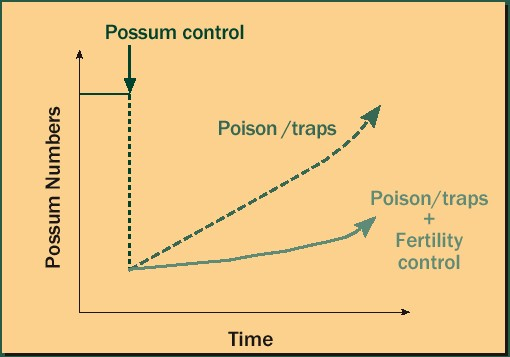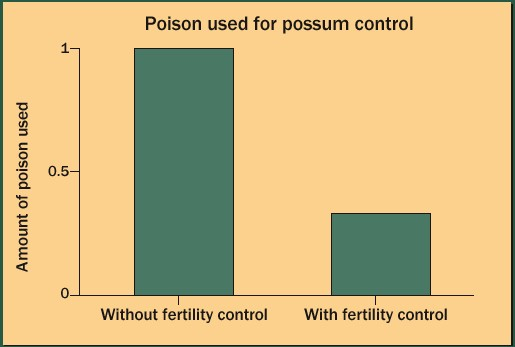FAQ

Possum egg
Possums are not native to New Zealand. They were introduced from Australia about 150 years ago to establish a fur trade. They now occupy about 95%of New Zealand.
Why is biological control needed?
- New Zealand has a huge possum population - perhaps 60 million;
- Possums seriously damage native forests and prey on endangered native animals;
- Possums carry bovine tuberculosis (Tb) and infect cattle and deer;
- High Tb levels in livestock threaten New Zealand's international trade;
- The $60 million spent each year on possum control is not solving the problem.
How will biological control work?
Biological control (immunocontraception)will reduce possum breeding. The possums ' own biological systems will be used to interfere with the process by which sperm fertilises the egg. This response will be triggered by proteins that make up part of the coat of the sperm or egg,and will stop female possums producing eggs and/or interfere with the fertilisation of any eggs produced. That way, no or very few baby possums will be born,so possum numbers will decline as the adults die off and there are no young to replace them. The biological control agent based on the sperm or egg proteins will be made into baits and fed to possums from bait stations.
Why not just use poisons or traps?
 |
| When possums are controlled using poisons or traps,the surviving animals breed better and live longer, probably because there is less competition for food and nest sites. The number of possums then quickly builds up again. Using biological control as well as conventional control will slow down the rate at which possum numbers build up. This means possum control can be done less often. |
How safe will it be?
It is impossible to guarantee absolute safety. Development of the biological control bait involves the latest in biotechnology,and the bait will not contain any live genetically modified organisms. The risk to anything other than possums will be minimised by:
- using specific parts of the sperm and egg proteins that are only likely to affect possums;
- using the baits in bait stations that restrict access by other species.
In addition, the safety of the bait will be thoroughly tested before it is made available for controlling possums.
What benefits will biological control bring?
 |
|
Using biological control in conjunction with conventional control will:
|
Future developments
Biological control using baits will be limited by the amount of money available for possum control. A system where the biological control agent passed naturally from possum to possum would be much more cost effective and could potentially reach every possum in New Zealand. A virus and a parasitic worm that infect only possums are being investigated as possible ways of naturally transmitting biological control.
Landcare Research and its partners in the Cooperative Research Centre for Marsupial Conservation and Management are developing biological control for possums. A biological control bait for possum control is likely to be available in the next 5 -10 years.
